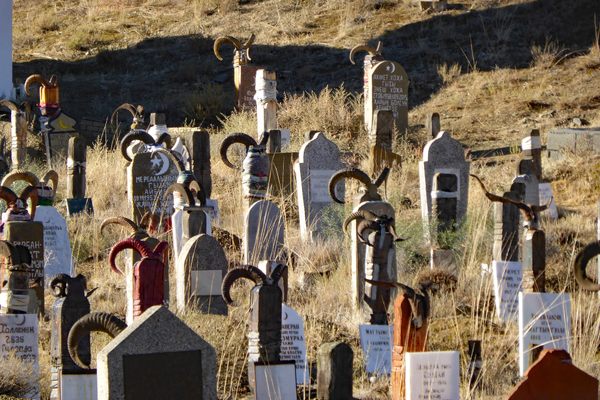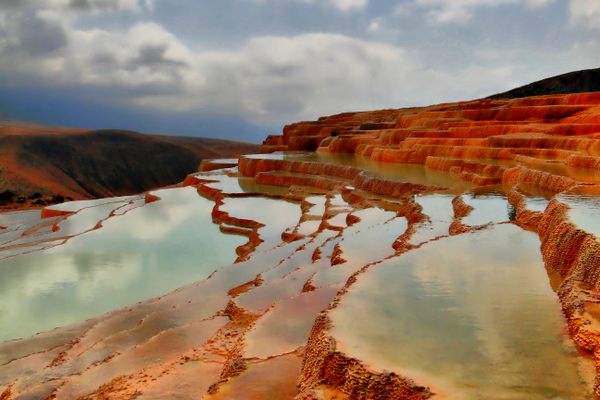Dekhistan Ruins
The remains of a medieval city loom in one of the most isolated desert regions of Turkmenistan.
What’s left of a former flourishing trade city eerily juts out of Turkmenistan’s remote Misrian Valley, the site of medieval Dekhistan. Now in ruins, this area by the Caspian Sea was once a fertile region that supported some 3,000 years of civilization.
In its heyday, Dekhistan was a prosperous and strategically located urban center along a caravan route between the ancient realms of Khoresm, an oasis region in Central Asia, and Hyrcania, located southeast of the Caspian Sea in present-day Iran.
Dekhistan is believed to have risen in the late 8th century to early 9th century, and comprised nearly 500 acres of fortressed land divided into an old town and a trading and residential district. The capital city of Misrian thrived under the Khwarazmian dynasty, and was notably the site of a medieval mosque with two 80-foot minarets, constructed between the 10th and 12th centuries.
The city declined due to the collapse of its advanced irrigation system after extensive deforestation, in conjunction with an invasion by the leader of the Mongol Empire, Genghis Khan. By the 15th century, Dekhistan was completely deserted, and most of the city has been blanketed by sand.
The valley has since become arid and infertile, and Dekhistan is now in one of Turkmenistan’s harshest regions. All that remains within the ruins of the city walls are the great mosque’s minarets and portal, as well as bits of former mausoleums and caravanserais.
Know Before You Go
Tours to the Dekhistan ruins are available for booking through private tour companies.















Follow us on Twitter to get the latest on the world's hidden wonders.
Like us on Facebook to get the latest on the world's hidden wonders.
Follow us on Twitter Like us on Facebook